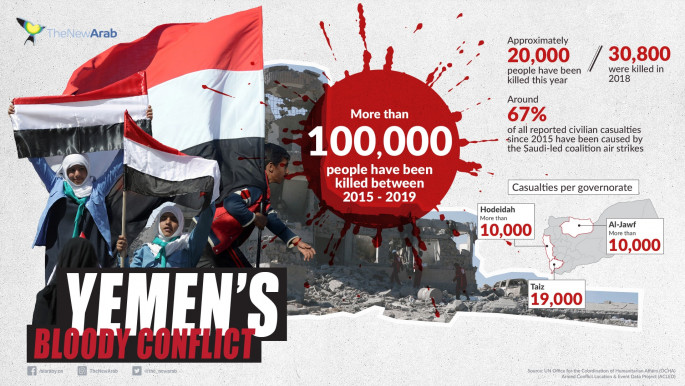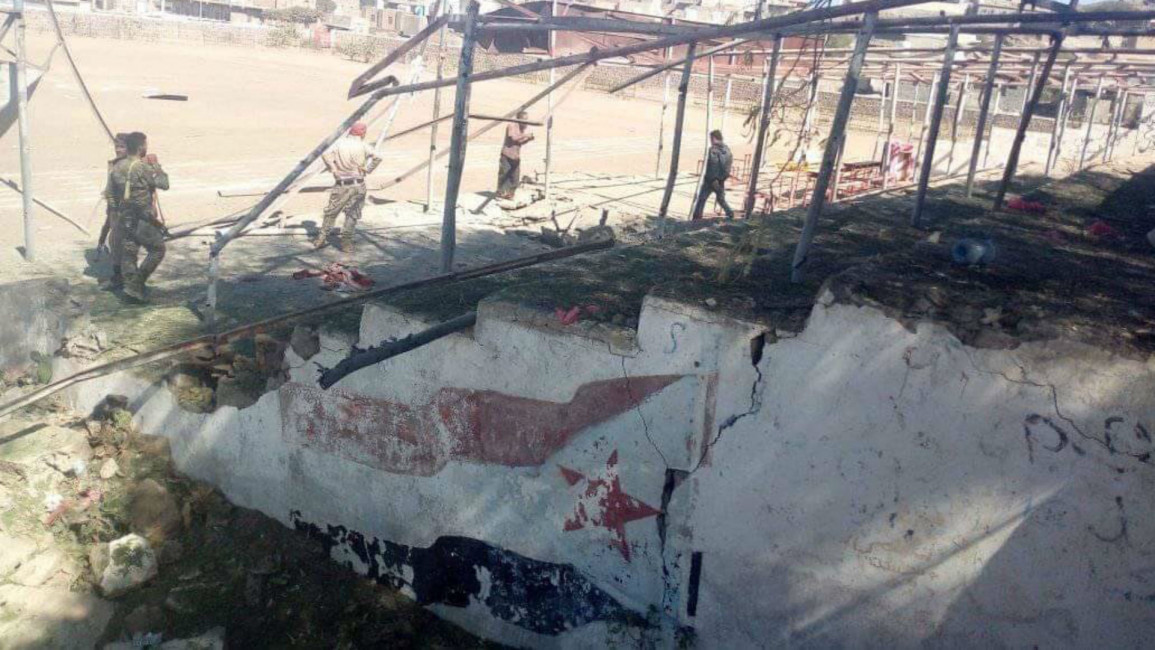Southern separatists killed in Houthi missile strike on Yemen military parade
Hundreds of fighters from both camps have died in battles in Dhale. The city has also seen violence erupt between the pro-government camp, with clashes being reported between units from Hadi's presidency brigades and the Security Belt Forces – a UAE-backed pro-government militia.
Twitter Post
|
A high-ranking Yemeni intelligence official, Brigadier General Saleh Tamah, was killed in the strike on a military parade in al-Anad airbase, in the government-held Lahj province some 60 kilometres (40 miles) north of Yemen's second city and temporary capital Aden.
Among those injured were Yemen's deputy chief of staff Saleh al-Zandani, senior army commander Fadel Hasan and Lahj governor Ahmad Abdullah al-Turki.
The security forces in the south have also come under repeated attack by both al-Qaeda and the Islamic State group.
Saudi Arabia, the UAE and other Arab countries intervened in Yemen's civil war in March 2015 in support of the internationally recognised government, which had been forced into exile by the Iran-backed Houthi movement.
Read more: Yemen in Focus: A deadly new battle emerges in Dhale
But the UAE has been accused by Yemen’s Hadi government of attempting to occupy the south of the country, where it has established a strong base and trained thousands of fighters.
The UAE’s activities in the south triggered a war within a war between rival unionist and separatist elements of the loyalist security forces, which the UAE backs.
The Security Belt Forces seized Aden in deadly fighting with unionists in August but a fragile truce reached in Saudi Arabia last month has so far failed to produce a promised power-sharing government.
The conflict, which escalated with the Saudi-led coalition intervention in 2015, has unleashed the world's worst humanitarian crisis, according to the UN, which says 80 percent of the population - 24 million people - are in need of aid.
Nearly 10 million people are just one step away from famine, UN aid chief Mark Lowcock warned, and figures suggest more than 100,000 have been killed.
 |
Follow us on Twitter and Instagram to stay connected



